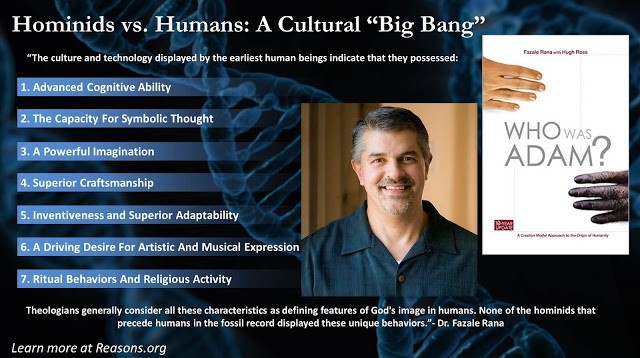We can gain knowledge about the subject of Christian apologetics until our eyes bug out of our heads. But knowing how to apply that information in our everyday lives is another animal. And a big part of learning effective communication is knowing our audience.
I’m old enough to remember those cheezy WWJD bracelets from the ’90s. I’m sure they decorated the wrist of many a Newsboys concert-goer. They do raise a good question that we’ll apply here. What did Jesus do when faced with doubters? Let’s look at a couple of examples:
The open-minded doubter – John the Baptist
Yes, even a spiritual stalwart like John the Baptist went through a period of doubt in his life. Despite being a prophet who emphatically preached that Jesus was the coming Messiah, John went through a crisis of faith near the end of his life.
We read in Matthew 3 that John confidently believed he was God’s messenger in fulfillment of Isaiah’s prophecy. (Isaiah 40:3) He said that he wasn’t worthy to even carry Jesus’ sandals and that Jesus would be Israel’s divine judge. He saw the Spirit of God descend on Jesus and heard the voice that Jesus was God’s divine Son. (Matthew 3:12-16)
But then things went south after he confronted Herod for marrying his brother’s wife. Herod imprisoned John, and John sent a few of his disciples out to Jesus with the question, “Are you the one who is to come, or should we expect someone else?”
Apparently, being locked up in a dungeon for speaking truth to power shook him up. Maybe he was expecting Jesus to set up the Kingdom of God a little more quickly and spring him from the pokey. John started to question his calling, and if what he was giving his life for was real.
Jesus replied, “Go back and report to John what you hear and see: The blind receive sight, the lame walk, those who have leprosy are cleansed, the deaf hear, the dead are raised, and the good news is proclaimed to the poor. Blessed is anyone who does not stumble on account of me.” (Matthew 11:2-6)
Jesus pointed to the miracles as evidence of him being the Messiah. He was also referring to Isaiah 35:4-6 and Isaiah 61:1, showing that he was fulfilling the Messianic prophecy to tighten the case. Jesus started preaching after John was imprisoned (Mark 1:14) so he might not have been fully aware of Jesus’ miracles.
Furthermore, as John’s disciples were leaving but still within an earshot, Jesus went on to say that John was a great prophet and the messenger of the covenant that Malachi prophesied about. (Matthew 11:7-12, Malachi 3:1) This was just the kind of shot in the arm that John needed. Notice that Jesus didn’t slam John for having a question or tell him to have blind faith; instead, he gave evidence. Jesus then talked about how great John was to the crowd, many of whom were probably baptized by John.
Jesus exemplified the command of Jude “have mercy on those who doubt” (Jude 23). As Christians, it’s vital we recognize who around us is going through doubt but are still open and humble enough to receive from us. John wanted to believe but was struggling. We need to see the ‘why’ behind some doubter’s questions and give them the ammo they need to persevere.
The Hostile Crowd – Jesus and the Pharisees and Sadducees.
Says he wants evidence, but…
The religious experts were entrenched in their belief that Jesus was a false teacher. In the very next chapter in Matthew, they demanded that he would demonstrate a miraculous sign as evidence. Jesus didn’t mince words with them. Let’s take a look at Matthew 12:38-42:
“He answered, “A wicked and adulterous generation asks for a sign! But none will be given it except the sign of the prophet Jonah. For as Jonah was three days and three nights in the belly of a huge fish, so the Son of Man will be three days and three nights in the heart of the earth. The men of Nineveh will stand up at the judgment with this generation and condemn it; for they repented at the preaching of Jonah, and now something greater than Jonah is here. The Queen of the South will rise at the judgment with this generation and condemn it; for she came from the ends of the earth to listen to Solomon’s wisdom, and now something greater than Solomon is here.”
It’s interesting to note that Jonah didn’t perform any miracles. The Ninevites didn’t have the evidence that Jesus was providing. The Pharisees and Sadducees were well aware already that Jesus was healing the sick. They could interview eyewitnesses. They even saw him cast out demons and said he did it by the power of Beelzebub! (Matthew 12:24)
But in the case of Ninevah, they did respond to evidence. They instinctively knew that they were breaking God’s moral law and needed to repent, that’s why they listened to Jonah. So the men of Ninevah would rise up and condemn them because they responded to the ‘lesser’ evidence – the moral facts written on their heart and their own conscience convicting them.
(Romans 2:14-15)
Jesus next gives the example of the Queen of the South as someone who would rise up and judge them for their disbelief. Think about it for a second. You have this queen, deep in Africa, hearing about a wise king in Israel who knew God. For days she traveled thousands of miles (no cars or planes back then) just to seek out his wisdom. She said, “The report I heard in my own country about your achievements and your wisdom is true. But I did not believe these things until I came and saw with my own eyes. Indeed, not even half was told me.” (1 Kings 10:6)
So she didn’t believe it at first, but because she valued truth and wisdom enough, she went to great lengths to at least check it out. By contrast, these Pharisees who stood in the presence of the miracle-working Jesus and said, like the famous skeptic Bertrand Russell, “not enough evidence, God!”. Jesus refused to give them more evidence and pointed to the fact that there are those who had less evidence responded correctly because of their hearts.
What do we learn from Jesus about responding to doubters?
We need to not only be ready to give a reason for why we believe what we believe, but we need to be able to read our audience. For those who saw the importance and were open to believing, Jesus took a merciful approach and gave them more info.
For the crowd that demanded that eyewitness testimony wasn’t enough, Jesus wasn’t having it. He told them that others have responded with lesser-but-sufficient evidence and that they didn’t have any excuse. The Ninevites just had Jonah’s preaching and their own consciences. The Queen of Sheba just had someone’s word for it and decided it was well worth looking into, even at great expense.
Jesus saw through their fake inquisitiveness and looked at the heart behind the question. The takeaway here is this, and don’t miss this: Don’t waste your time with the rude and bombastic skeptic! Don’t feed the trolls! It doesn’t mean you can’t respond to them for the sake of those who might be listening, but it’s also OK to call them out on the attitude of their heart.
I like to ask these types of skeptics what kind of evidence would convince them. Often the response I’ve received is that “Jesus would have to personally appear to me” or “God would have to write my name in the sky.” Well, OK, then. That’s not a person I’m going to be able to help much. That’s a double standard that they don’t apply to anything else. They get onto airplanes, buy computers, cars, and homes with far less evidence.
In a podcast, Christian apologist William Lane Craig addresses this sort of hypocrisy:
“I’ve noticed this with people in the free thought community. They have a sort of skeptical dial that they can ratchet way up when it comes to Christian beliefs so that almost nothing could provide sufficient evidence for these, but when it comes to their own worldview and commitments they dial it way down so that they don’t need to provide virtually any justification for their own beliefs in order for these to be rational. That, of course, is just hypocrisy. That is self-serving. If they are going to extol the virtues of doubt with respect to religious beliefs, they need to also extol those same virtues with regard to their own atheistic beliefs.”
So again: Have mercy on the Christian having doubts. Help the skeptic who is beginning to doubt their doubts. But for the convinced and rudely aggressive skeptic, don’t cast your pearls before swine. (Matthew 7:6) They’re hypocrites, and we know that Jesus called out hypocrites. Love them, pray for them, but if they’re going to be unreasonable, be kind but firm. And then move on to people who aren’t so prejudiced.
Recommended resources related to the topic:
Tactics: A Game Plan for Discussing Your Christian Convictions by Greg Koukl (Book)
Practical Apologetics in Worldview Training by Hank Hanegraaff (Mp3)
The Great Apologetics Adventure by Lee Strobel (Mp3)
Defending the Faith on Campus by Frank Turek (DVD Set, mp4 Download set and Complete Package)
So the Next Generation will Know by J. Warner Wallace (Book and Participant’s Guide)
Reaching Atheists for Christ by Greg Koukl (Mp3)
Living Loud: Defending Your Faith by Norman Geisler (Book)
Fearless Faith by Mike Adams, Frank Turek and J. Warner Wallace (Complete DVD Series)
Erik Manning is a former atheist turned Christian after an experience with the Holy Spirit. He’s a freelance baseball writer and digital marketing specialist who is passionate about the intersection of evangelism and apologetics.
Original Blog Source: http://bit.ly/2ntGkuc











